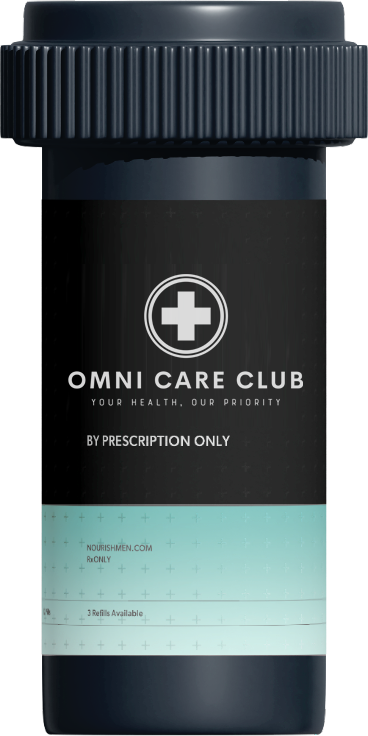Oral contraceptives, commonly referred to as birth control pills, are prescription medicines that are FDA approved to prevent pregnancies.
24/7 Online Access to Our Medical Professionals
Skip Pharmacy Lines and Get Reliable Free Shipping
Get Exactly What You Need at Competitive Prices

Learn more about our FDA approved treatments and get access to our US medical teams and pharmacists.

Combination pills contain two types of hormones: estrogen and progestin.
Starts at
$2.00 per dosage
The two main ways combination pills work are:
Inhibition of Ovulation: The hormones in the combination pill prevent the release of an egg (ovulation) from the ovaries. Without a released egg, there is no egg available for fertilization by sperm, reducing the chances of pregnancy.
Thinning of Uterine Lining: The hormones also cause the uterine lining to become thinner. This makes it less likely for a fertilized egg to implant and grow in the uterus.

Progestin-only pills (also called mini-pills) contain only progestin, without any estrogen.
Starts at
$2.00 per dosage
These pills primarily work by:
Thickening Cervical Mucus: Progestin thickens the cervical mucus, making it difficult for sperm to reach and fertilize an egg.
Inhibition of Ovulation: Like combination pills, progestin-only pills can also inhibit ovulation, although they may not do so consistently in every cycle.
Please Note: It’s important to note that oral contraceptives are most effective when taken consistently and correctly. It’s typically recommended to take them at the same time each day to maintain their effectiveness. While oral contraceptives are highly effective, they do not protect against sexually transmitted infections (STIs). Therefore, using condoms or other barrier methods in addition to oral contraceptives is advisable if you want to protect against both pregnancy and STIs.
Complete Free Consultation
Doctor Review within 24 Hours
Free Delivery if Approved

Oral contraceptives are a popular and effective method of preventing pregnancy. Here’s what you can generally expect when using oral contraceptives:
Hormonal regulation: Birth control pills contain hormones (usually a combination of estrogen and progestin or progestin alone) that mimic the hormones naturally produced in your body. These hormones work together to prevent ovulation, which means that an egg is not released from the ovaries during your menstrual cycle.
Pregnancy prevention: When taken correctly and consistently, birth control pills are highly effective in preventing pregnancy. However, no contraceptive method is 100% foolproof, so there is still a small chance of pregnancy (typically less than 1% with perfect use).
Menstrual cycle changes: Birth control pills can regulate your menstrual cycle and make your periods more predictable. Some people may experience lighter periods, while others may have shorter or more regular cycles.
Reduced menstrual cramps and PMS: Many individuals find that birth control pills help alleviate menstrual cramps and reduce premenstrual syndrome (PMS) symptoms like bloating, mood swings, and breast tenderness.
Acne improvement: Some types of birth control pills are prescribed to improve acne in certain individuals, as the hormones can help regulate oil production in the skin.
Oral contraceptives are most effective when taken at the same time every day. Pick a time that is convenient for you, such as in the morning or evening, and stick to it. If you are starting the pill for the first time, begin taking the first pill on the first day of your period. If you are switching from another birth control method or have been off the pill for more than a month, follow your healthcare provider’s instructions. Birth control pills are typically packaged in 28-day cycles, with 21 active pills containing hormones and 7 inactive pills (placebos). Take one active pill each day for 21 days, followed by one inactive pill daily for the next 7 days. You can also choose a 21-day pack and skip the inactive pills if you prefer to have fewer periods. Set a reminder or an alarm on your phone to help you remember to take the pill at the same time every day. Consistency is crucial for the pill’s effectiveness. If you miss one active pill, take it as soon as you remember, even if it means taking two pills in one day. If you miss two or more pills, follow the specific instructions on the pill pack or consult your healthcare provider. If you miss active pills and have had unprotected sex in the past five days, consider using backup contraception (e.g., condoms) until you have taken seven active pills in a row.
Oral contraceptives are very effective at preventing pregnancies along with other benefits for certain conditions. Like most medications, side effects are possible. Here are a few to consider:
It’s important to note that these side effects are generally mild and tend to improve after a few months as the body adjusts to the hormonal changes. However, if you experience severe or persistent side effects, you should contact your healthcare provider to discuss alternative contraceptive options or adjust your current pill regimen.
If you miss one active pill, take it as soon as you remember, even if it means taking two pills in one day. If you miss two or more pills, follow the specific instructions on the pill pack or consult your healthcare provider. If you miss active pills and have had unprotected sex in the past five days, consider using backup contraception (e.g., condoms) until you have taken seven active pills in a row.
Keep this medication in the original package that you received it in and out of reach of children. Store it at room temperature and away from excess heat and moisture (not in the bathroom).


Copyright 2024 Omni Care Club | All Rights Reserved

Thank you for choosing Omni Care Club. The following questions will provide important information to your assigned provider so they can properly access your condition and prescribe medication if appropriate.
The information you are about to provide will be used by a board certified physician licensed in your state to help create a treatment plan for you. Please answer all questions accurately.
By clicking “Start” you consent to our Telehealth, Privacy Policy and Terms.

